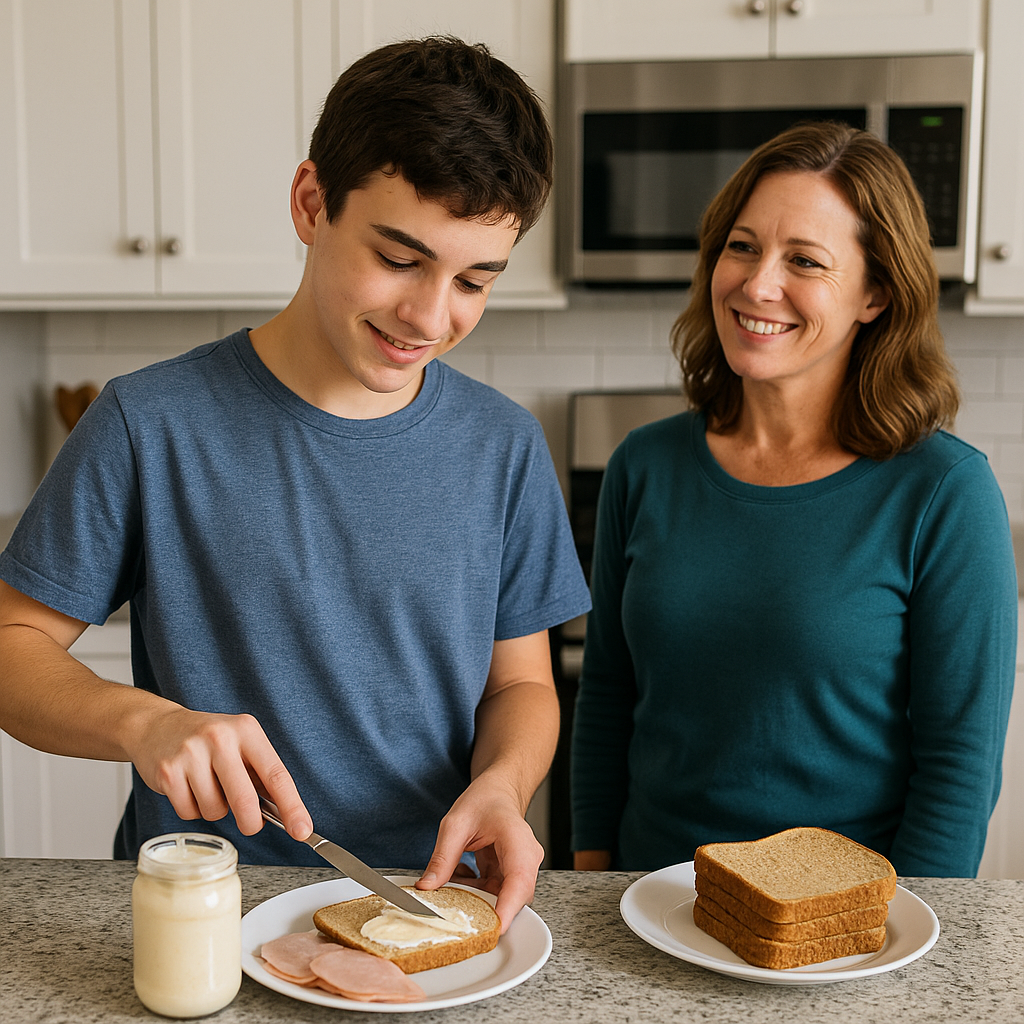
Why ABA for Teens Matters
When many people think of ABA therapy, they picture young children. While it’s true that early intervention is powerful, ABA is equally valuable for teenagers. Adolescence brings new challenges—peer relationships, increasing academic demands, greater independence, and preparation for adulthood.
For teens on the autism spectrum, these changes may feel overwhelming. They may struggle with executive functioning, social expectations, or emotional regulation. Parents often worry about how their teen will navigate high school, friendships, and eventually, adulthood.
ABA therapy provides teens with practical tools to handle these transitions. By focusing on age-appropriate goals, therapists help teens build skills that prepare them not just for today but for the future.
Key Areas Where ABA Supports Teens
1. Social Skills and Peer Relationships
Teen years bring greater social expectations—friendship dynamics, group activities, and even dating. ABA helps teens:
- Understand body language and social cues
- Practice conversational skills
- Navigate group settings like school clubs or sports
- Develop conflict resolution and compromise
2. Executive Functioning
Teens face more academic and personal responsibilities. ABA supports:
- Organization of schoolwork and schedules
- Time management for homework and activities
- Planning for long-term projects
- Building independence in daily routines
3. Emotional Regulation
Hormonal changes and social pressures can intensify emotions. ABA teaches coping strategies like deep breathing, taking breaks, and using calming tools to handle stress.
4. Independent Living Skills
As teens approach adulthood, independence becomes key. ABA can address:
- Managing personal hygiene and self-care
- Preparing meals
- Handling money and budgeting basics
- Learning transportation safety
5. Vocational and Community Readiness
For older teens, ABA often includes pre-vocational training and community skills:
- Following multi-step directions from supervisors
- Practicing workplace etiquette
- Volunteering or job-shadowing in local businesses
- Using public transportation safely
Real-Life Example: Building Independence Step by Step
Jordan, a 15-year-old from St. Louis, struggled with managing his homework and often forgot to bring materials home from school. His parents worried about his readiness for high school.
With ABA support, Jordan began using a color-coded binder system and a daily checklist for assignments. His therapist reinforced consistent use of the system at home, while teachers helped at school. Within a semester, Jordan not only kept track of his work but also gained confidence in planning ahead.
Later, Jordan applied these same skills to prepare for a part-time volunteer role at a community center, where he successfully followed multi-step tasks. His parents described ABA as “the bridge to independence.”
Parent Tips for Supporting Teens with ABA
1. Involve Your Teen in Goal Setting
Ask your teen what skills matter most to them—whether it’s making new friends, learning to drive, or preparing for a first job.
2. Encourage Practice in Real-Life Settings
Support ABA goals at home and in the community, like cooking dinner together or practicing social skills at family events.
3. Celebrate Small Wins
Progress may come in small steps. Recognize achievements like completing a checklist or handling a tough conversation calmly.
4. Foster Independence
Give your teen increasing responsibility at home, from managing laundry to budgeting allowance money.
5. Collaborate with Schools
Ensure that ABA strategies align with your teen’s Individualized Education Plan (IEP) and academic supports.
Opportunities in St. Louis for Teen Skill Practice
Families in St. Louis and Chesterfield have local resources that provide natural opportunities for teens to practice ABA skills:
- St. Louis Public Library: Quiet study spaces for practicing focus and time management.
- Community volunteer programs: Opportunities to develop pre-vocational skills.
- Chesterfield Mall and local shops: Practicing money management and social interactions.
- Public transit systems: Learning travel safety and independence.
- Community recreation centers: Joining group sports or classes to build peer relationships.
These experiences help teens apply ABA strategies in real-world environments, preparing them for adulthood.
Why ABA During the Teen Years Builds Lifelong Success
Supporting teens with ABA goes beyond managing challenges—it prepares them for their next stage of life.
- At school: Teens develop organization and self-advocacy skills.
- At home: Families see more cooperation and independence in routines.
- In the community: Teens gain confidence engaging with peers and new environments.
- For adulthood: Skills in self-care, employment readiness, and social interaction pave the way for long-term independence.
Long-Term Benefits for Families
Families often feel reassured when ABA continues through the teen years. Parents report reduced conflict, smoother daily routines, and greater confidence in their teen’s future. Teens themselves express pride in their independence and new abilities.
ABA not only supports the child but strengthens the whole family’s sense of possibility for the future.
FAQ
Q1: Is ABA effective for teenagers, or only young children?
ABA is effective for all ages. Goals are adapted to focus on age-appropriate skills for adolescents.
Q2: What if my teen resists therapy?
Therapists work collaboratively, incorporating your teen’s interests and goals to make therapy meaningful.
Q3: Can ABA help with preparing for jobs?
Yes. ABA includes vocational training, social skills for the workplace, and practicing independence.
Q4: How long does it take to see progress?
Progress varies, but with consistent practice, families often see improvements within weeks or months.
Q5: Can parents still be involved when their child is a teen?
Absolutely. Parent participation is key, and teens benefit when families reinforce skills at home.
